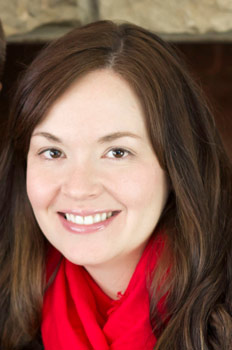Please welcome guest author Tamara Girardi with a post that challenges the old adage, “write what you know.” This post contains affiliate links that earn commissions for this website from qualifying purchases.
In mid-October, I attended a literary evening with Jodi Picoult as part of the Pittsburgh Arts & Lectures series.
My immediate impression of Picoult: she was incredibly gracious and pleasant. At a reception prior to the event, she worked the room with a genuine smile, taking pictures and shaking hands. During one conversation, she laughed so loud with an attendee the room took notice. In other words, she was lovely.
So was her talk.
She focused on her extensive research, which has contributed to her brand as a writer. Anyone who has read one of Picoult’s novels expects a blend of literary and commercial qualities with significant research that provides the reader an opportunity to learn something new. Picoult shared stories about her time ghost-hunting to write Second Chance and interviewing Holocaust survivors for The Storyteller. The stories she told about researching for her books were just as compelling as the novels themselves.
However, a piece of advice Picoult received as an undergraduate studying creative writing at Princeton could have prevented the creation and success of her twenty-three novels, nine of which debuted at number one on the New York Times Best-Sellers List.
The advice was “write what you know,” and it’s not uncommon. Jokingly, Picoult told the crowd she quickly learned she knew nothing and thought it might be best to revise the adage to “write what you’re willing to learn.” In her biography for the event, Picoult wrote that writing what she wants to learn ensures she’s “energized about what [she’s] doing when [she sits] down to do it.”
Not only can writing what you want to learn be energizing, it can also broaden your potential topics and intensify the uniqueness of your story and characters. Picoult’s latest novel Leaving Time features an elephant researcher. She has written about cloning and gene replacement therapy and dynamics of wolf packs, to name only a few of her unique topics. The winning combination is a story world that fascinates the author and her readers.
During a writing workshop several years ago, writing teacher James N. Frey, author of How to Write a Damn Good Novel, encouraged attendees to write protagonists who were on the edge of the bell curve, not characters who were like every other character in the middle of the curve. Because of her efforts to write what she wants to learn and not what she knows, Picoult’s characters and stories hover on the edge Frey mentioned.
But how do writers write about what they want to learn and ideas on the edge of the bell curve? Here are five tips to get you started:
1. Look for ideas everywhere:
Picoult got the idea for Second Chance when she was walking through her kitchen and noticed a headline from the newspaper sitting on the table. The article detailed a complaint from the Abenaki Native American Tribe that a new development would be built on a burial ground. An entire novel grew from that one headline.
If you’re reading a book, scrolling the Internet, watching a television program, or talking to a family member and a small nugget of information fascinates you, it might do the same for your readers. Make note of it.
2. Twist:
The literary agent and author of How to Write a Breakout Novel advocates for creating a twist on an old idea. To achieve this, writers must be aware of old ideas, so they can make them new. To place the protagonist of my unpublished young adult novel Broken on the bell curve, I decided she should be a competitive crossbow shooter. The idea came from a newspaper article I wrote about a fourteen-year-old girl who had won several sharpshooter competitions. I chose to model the shooter but change the weapon. Besides, shooting a crossbow was wicked fun. Then Katniss Everdeen happened, and a teenage girl with a bow is not quite on the edge of the curve anymore. In other words, the curve can shift based on literary trends. Keep that in mind, and when you find a great idea, be sure there’s a twist to make it even more unique.
3. Explore:
After noting a fascinating nugget of information, explore the topic more. Of course, great places to start are local libraries and the Internet, but don’t be afraid to contact people in your community who are knowledgeable about what you’re researching. Interview them. Visit them. Befriend them. In my experience, people are often eager to share their insight, especially if they know they’re talking to a writer doing research.
4. Experience:
As I mentioned above, I adored my experience of shooting a crossbow. I never would have imagined the arrow would project that quickly. It was amazing! To make my character realistic, shooting with the bow was absolutely necessary. If at all possible, immerse yourself in the experience you’re writing about. Picoult knew that to write a ghost hunter, she had to go ghost hunting. So she did. Observation is a powerful tool for writers. Take any opportunity to get as close as possible to the people and the culture you’re fictionalizing. Honor them with as much authenticity as you can.
5. Double-check:
In academic research, there’s a process called “member checking” that requires researchers to share their interview findings with participants for feedback. Similarly, fiction writers tend to share passages of their work with experts to double-check the authenticity. I have several mystery author friends who share their work with lawyers and police officers, especially if they’re writing police procedurals. In Broken, the young adult novel I mentioned above, grief is a major theme in the book, so a psychologist friend of mine reviewed excerpts and offered enlightening feedback. Who knows? The process of double-checking could yield more ideas from your experts, and those ideas could send you even further toward the edge of that bell curve. I hope to see you there.
 About the Author: An English Instructor for Harrisburg Area Community College’s Virtual Learning program, Tamara Girardi holds a PhD in English from Indiana University of Pennsylvania and a Master of Letters in Creative Writing from the University of St. Andrews. Her YA fantasy Dreamseer won the 2013 PennWriters Novel Beginnings Contest and is on submission with agents. Tamara is a member of Backspace, Sisters in Crime, and PennWriters. Follow her on Twitter @TamaraGirardi.
About the Author: An English Instructor for Harrisburg Area Community College’s Virtual Learning program, Tamara Girardi holds a PhD in English from Indiana University of Pennsylvania and a Master of Letters in Creative Writing from the University of St. Andrews. Her YA fantasy Dreamseer won the 2013 PennWriters Novel Beginnings Contest and is on submission with agents. Tamara is a member of Backspace, Sisters in Crime, and PennWriters. Follow her on Twitter @TamaraGirardi.





This is such great advice! I also was told to write what I know. Problem was, I didn’t want to write about what I knew because it was sad and depressing. I wanted to write about things that interest and excite me. Thanks for sharing this. Regards, Johoanna
I originally found “write what you know” to be odd advice for fiction writers, but then I realized that if you want to write about something you don’t know, you can learn it. Once you learn it, you know it. So, the notion of learning something before writing about it is included in the adage.
Thank you for this thought-provoking piece, Melissa. I always have real difficulty in writing anything that I don’t tear up or delete within seconds of writing it, buit this idea of ‘writing what you know’ has never made any sense to me. What DID Anne McCaffrey KNOW of Dragons or runners? What DID Isaac Asimov KNOW of hyperspace (assuming it actually exists). I rememer reading once, a long time ago, admittedly, that Ruth Rendell had never even been in a police station!
I am getting too old to change, I suppose, but if I were younger, I just WOULD NOT listen to well-meaning advice!
Once again, thank you — and Merry Christmas.
Anne McCaffrey did know her dragons and runners. She may have made them up but she knew them, and she also based her story world on established science. In genres like sci-fi and fantasy, “write what you know” seems like impossible advice, but it’s actually excellent advice. In these genres, authors have to build worlds. In the case of sci-fi, the worlds have to be scientifically plausible. The worlds have rules and systems. Everything needs to be consistent and well established. That’s why so many authors work on world building before drafting. By researching to verify scientific plausibility and developing a concrete story world, the writer is getting to know the facts and details of his or her story.
I realize that “write what you know” is often taken to mean that authors should only write about things they already know a lot about, but I don’t think that is the true intent of the advice. I think it’s really more about knowing what you’re talking about before you write it, and that includes things you learn or things you invent.